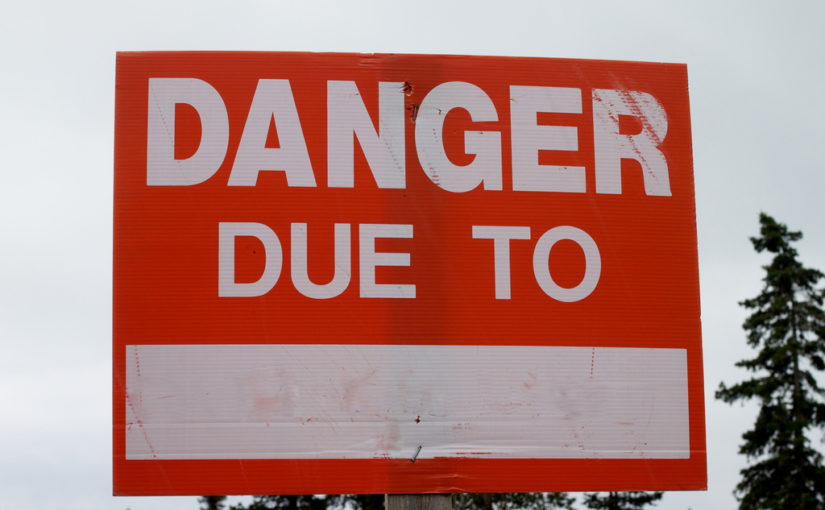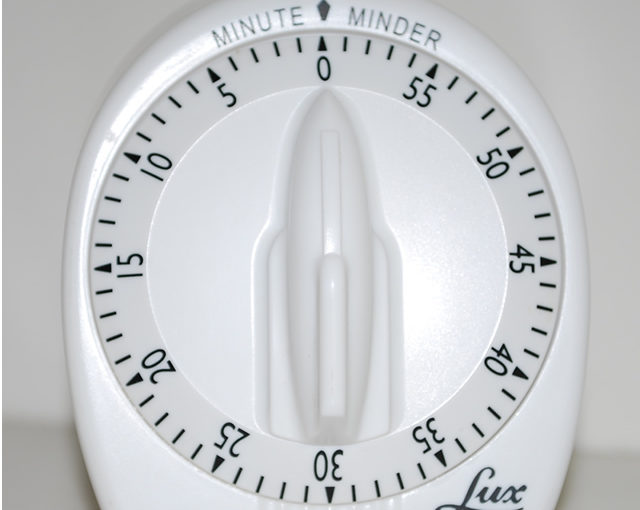Some of the most influential communication techniques are also extraordinarily easy. Here’s a technique that will take your presentations up a notch with almost zero effort.
Tag: Impact
Sensational Verbal Sorcery
If you want people to hear you, talk. If you want people to understand, simplify. If you want people to remember, sensationalize!
When I say sensationalize, I don’t mean “sensationalize.” I don’t necessarily mean sensationalism in the sense of perverting the facts for the sake of shock value.
Rather, sensationalism in presentation skills means that if you want people to remember what you say, you need to add “sensations.” Anything related to your basic senses–sight, sound, touch, taste, smell–automatically bypasses the conscious mind and directly targets the listener’s subconscious.
When you engage the subconscious as a public speaker, you always leave a bigger impact, because in addition to a logical argument, the listener can FEEL (i.e. sense) your message.
One Minute Speech Case Sudy
Do you actually believe reality TV is reality?
Last week, my kids were watching “America’s Got Talent.” I happened to catch the introductory video of one of the contestants, Jon Dorenbos–an NFL long snapper and magician.
Jon articulated his backstory with such excellent verbal sorcery, that I had to share:
There is definitely some reality involved, but don’t believe for a second that every contestant is just some average, ordinary, inarticulate nobody.
He did this quick little speech so well, that I had to look him up. Surprise, surprise, he’s actually a professional speaker!
Public Speaking Sensationalism 101
How does he make you FEEL his words?
 Simple. Instead of just TELLING you his message, he describes the message in words that create a SENSORY experience.
Simple. Instead of just TELLING you his message, he describes the message in words that create a SENSORY experience.
In the SpeechDeck Public Speaking skills program, the technique of adding sensory description is one of the primary presentation skills categorized under the violet “Engage the Subconscious” principle.
Here’s a short transcript of his one minute speech with my commentary in brackets:
As a little boy I had two loves–one was football and one was magic. Since I lost my mom as a kid, magic gave me hope, magic gave me love, magic gave me life. [His stage magic is based partly on verbal sorcery.]
[Begins unnecessary intro] Both of these things made me who I am, and so now it’s as if my whole life has come full circle and I’m coming back to that moment where magic and football meet on the same level. [End unnecessary intro]
I’ve been able to perform at the highest level for 14 years in the NFL and it is awesome. [Because the word AWESOME is SUBJECTIVE it triggers the subconscious with anticipation.] As you walk out of an NFL tunnel, everything just becomes still. [He uses the UNIQUENESS of personal NFL experience to build anticipation and reveal part of himself] It’s the calm before the storm. [He makes a clear thematic statement.]
And then, as soon as you run out [phrased from listener’s perspective]–wham! [Tactile and/or auditory onomatopoeia–using a non-word WHAM makes it more like an experienced sound effect, and less like a cognitive verbal exercise.] It’s 77,000 people strong cheering [visual], screaming [auditory], taking their hands and banging them against the metal seats [auditory/tactile–without the word METAL you wouldn’t get the auditory]. You just hear that ding, ding. [Again, sound effects rather than words.]
And you get that energy and it feels like an earthquake [tactile metaphor] is just rumbling [auditory/tactile] underneath the stadium as if it’s just gonna shatter and fall apart [visual metaphor]. It is the greatest feeling ever.
[I would recommend Jon add one sentence about coming out of a stuffy tunnel into fresh air and/or a concession filled stadium to add the olfactory sense, however, it’s not absolutely necessary when talking about something like a stadium, because the word stadium by itself comes with those olfactory associations built in.]
I never thought anything could match that, but there’s something about being on the stage of America’s Got Talent. It’s the ultimate accomplishment. [Discloses metaphor]
When I step out there tonight I’m gonna take that deep breathe [tactile]. I’m gonna close my eyes [visual] and feel the hairs come up off my arm [tactile], and it’s gonna be that eerie silence [auditory]–the calm before the storm [restated THEME]–and when my eyes are open [visual], it’s game time [repeated metaphor], and I’m gonna love every single second.
Whatever you might think of his stage magic, this is the work of a verbal magician. Jon Dorenbos is a very talented verbal sorcerer (aka: public speaker).
It’s NOT an Accident
Can you do it in your presentations? Of course, but don’t believe for a second that this is just happenstance.
The subconscious impact garnered from adding sensory experience to your presentation is so effective, that corporations, marketers, and professional speakers pay writing consultants big bucks for this very reason.
don’t
tell!
On the first day of class, every good writer learned the cliche “show, don’t tell.” In a writer’s world, one of the easiest ways to do that is with sensory description.
In an ideal setting, for maximum impact, you would actually give your audience real sights, real sounds, real smells, real taste, and real tactile experience. Unfortunately, with public speaking skills, were often limited to verbal descriptions of the same.
Jon Dorenbos and other successful professionals are not accidentally describing things this way. The marketers who use this technique are not stumbling across effective words. They know EXACTLY what they are doing. They are doing it purposefully and intentionally.
They are doing it because it works–it makes you remember them, it makes you vote for them, and it makes you buy their stuff!
So what is a presenter to do when you can’t deliver tangible experience? Deliverer sensational verbal sorcery.
Something About a Sitcom Grabs Attention
The most watched broadcast on TV is the Superbowl. Do you know what is the second most watched show?
Easy Emotion without being Emotional
Do you know how to make someone feel emotion? Thanks to Aristotle, every public speaking class teaches you to “utilize an emotion appeal” (Aristotle’s pathos). Unfortunately, they never tell you HOW.
2 Minutes that Change Everything
Have you heard that you have just 30 seconds to get the listener’s attention when you start a presentation? That’s not exactly true. There is a time that’s even more important.
If You Only Do 1 Thing To Make a Good Impression
When a client preparing for the Governor’s convention and my wife preparing to talk to the women at church asked me the same question, I found myself giving them the same answer. Continue reading If You Only Do 1 Thing To Make a Good Impression






